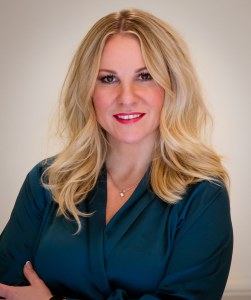 I refuse to be disheartened with all the figures and stats emphasising gender inequalities for women in business.
I refuse to be disheartened with all the figures and stats emphasising gender inequalities for women in business.
Women in business were, for a long time, not given the opportunities to fully show their talents and abilities within the workplace, but gradually the barriers are coming down. After all, there is no monopoly on creativity.
It’s true, I’m discouraged that women still have a long way to go in minimising the average gender pay gap of 19%. It’s true, I’m depressed that women on FTSE boards make up only 26% and that generally women are working in lower paid sectors for less money. It’s true, I’m indignant that too few women end up running top companies and that their participation in the workforce drops after childbearing, never to catch up. All true, but I refuse to be disheartened.
It’s not just that I’m a glass half-full person or complacent about the challenges still ahead, it’s because that although these statistics do show some ugly truths, they are only part of the story. I know from other research statistics and my own experience that women play a vital role in shaping businesses and driving profit and that the situation is improving.
When asked what women contribute most within the world of business, people often respond with ‘good at listening’, ‘collaborative working’, ‘female intuition’, ‘great at multitasking’. But they don’t initially say creativity and problem solving. Yet what drives businesses forward are the creative ideas and the ability to solve problems while implementing them, and as far as I know these talents are not confined to one gender!
I’m heartened when I see women shaping their communities and driving change even when they are in some of the poorest parts of the world. For example in rural Malawi and Zambia, women are helped by Microloan Foundation with a very small sum of money to start their own business. These are loans, not handouts and 99% are repaid. The women know what businesses will work in their community and how to create value.
In the UK, I’m proud that there are now almost 1 million small and medium businesses led by women. These are in diverse fields, including previously male-dominated industries such as Tech and Finance. Research published recently by Founders4Schools found that 750 of these women-led companies have an annual turnover of up to £250m and are growing at a rate of 30 per cent a year. Their founders are hoping to follow in the footsteps of companies developed by successful business women, for example Anya Hindmarch with luxury accessories, Martha Lane Fox with online travel or Denise Coates, founder of the highly profitable Bet365 online bookmaking empire.
To achieve success, small businesses need capital to grow and I’m happy that this is happening with support from organisations that help entrepreneurs to ‘scale up’. Sherry Coutu has been an entrepreneur and angel investor herself and co-founded SVc2UK (Silicon Valley comes to UK) which is a not-for profit programme to “inspire entrepreneurship, innovation, and economic prosperity”. This year saw a ‘Female Founders in Tech’ trade mission to Silicon Valley with established companies looking for the step up to the next level. This diverse group of businesses includes Seenit, a video collaboration platform, SeAB Energy, designer and manufacturer of micro waste plants and Live Better With, which supports cancer sufferers and their families. From small acorns…
I feel the excitement within the business world as women use their networks, mentoring abilities and knowledge to power up their ventures.
Research shows that having boards which include women impacts the bottom line. ”Companies with higher female representation at the board level or in top management exhibit higher returns on equity, higher valuations and also higher pay-out ratios” (Credit Suisse 2014). It is, therefore, not just beneficial for individuals and their companies, but for the country as a whole. McKinsey estimates that the UK could add £0.6 trillion of additional annual GDP in 2025 by fully bridging the gender gap. Now that would really make a difference.
So yes, there is plenty still to do and we should not rest on our laurels, but as a businesswoman in the 21st century, I’m optimistic. With new visions, new ideas and both women and men working together to achieve diversity, the future looks bright. Women were, for a long time, not given the opportunities to fully show their talents and abilities within the workplace, but gradually the barriers are coming down. After all, there is no monopoly on creativity.
About Kamila Sitwell:
 Kamila Sitwell (née Malkowska) came to the UK from Poland in the mid-90’s, a few years after Poland transitioned from a communist state to a democratic country. Kamila’s dream was to obtain a solid business education in the UK, globally influential centre of commerce, finance and culture.
Kamila Sitwell (née Malkowska) came to the UK from Poland in the mid-90’s, a few years after Poland transitioned from a communist state to a democratic country. Kamila’s dream was to obtain a solid business education in the UK, globally influential centre of commerce, finance and culture.
Between 1996-2001 she held several jobs in the foodservice industry that enabled her to work around her degree course – a kitchen porter in a local sandwich bar, bartender in The Limelight Nightclub, waitress/barmaid/pub and restaurant manager in the North London area. Whether it was the the fast-paced nature of restaurants combined with service aspect and something as enjoyable as food, her passion for the industry began.
In 2000 she gained her BA Hons (University of Glamorgan) and subsequently her MBA. Her MBA thesis was on the chameleon-like nature of the foodservice industry for which she received a university distinction. Although qualified and fluent in four languages, she was unable to obtain full time sponsorship to remain in the UK, so left her long-term partner and returned to Poland to work for Tchibo – Germany’s biggest coffee retailer and shop chain. Her career progressed rapidly but she never stopped dreaming about success in the UK.
When Poland joined the EU in May 2004, Kamila moved to the UK and reunited with her boyfriend. She married Vincent in 2006 and they have two boys – Oscar and Dexter.
In London, she worked in various positions in retail consultancy and FMCG. But it’s only the last few years while working for Britvic and PepsiCo on soft drink strategy for the Eating Out market, the passion she once felt for the Foodservice industry came back with full force.
UK Eating Out Leisure in 2016 is unlike any other industry. Full of inspiring, entrepreneurial people with great vison and determination. Serving artisan, adventurous food and drinks to the passionate audience of “food-pleasure seekers” who are always looking for experiences. This is an industry where constant change and innovation are the norm and the big players such as Britvic struggle to adapt. Kamila didn’t feel that the big company culture and rigid processes would ever lead to real change in the category or the company. With extensive knowledge of the industry, channel and category, Kamila decided to go it alone.
Dexos Drinks (the company named by joining her sons’ names) makes gourmet customisable beverages for consumers and will be launched in Spring 2017.








